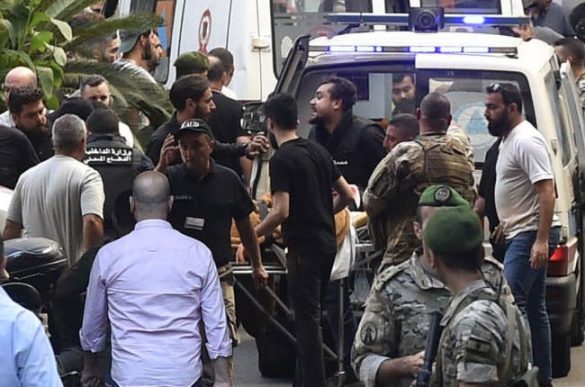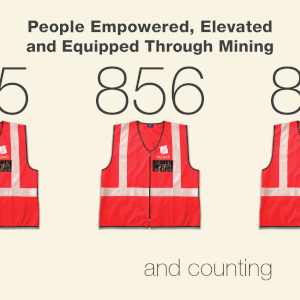Mirna Fahmy-Diplomatic Inside
The news of “Pagers’ attack” of Hezbollah has ruffled the social media and the news headlines demonstrating how cybersecurity can be scratched, killing many as what happened in Lebanon.
Blasts from individuals’ pockets have swirled all the media footage of many distant parts across Lebanon and Syria, including crowded places like supermarkets. That was at about 15:45 local time in Lebanon on Tuesday 17, 2024.
What has exploded in the pockets is identified as “Pagers,” a low-tech means of communication that Hezbollah members use instead of mobile phones to evade the tracking of Israel and target them with missiles. The pager is equivalent to a cell phone, mainly used for voice messages only.
It is like a small radio communication device developed in the 1960s for emergency situations that relies on sending digital signals via radio waves to notify the user that someone has tried to contact him. The device cannot connect to the Internet, and it is considered a relatively safe means of communication from hacking and espionage, which prompted Hezbollah to provide it to its members to protect them from the Israeli army, according to security estimates.
Eventually, after the explosions, Hezbollah and Lebanon’s prime minister put the blame on Israel. No one from the Israeli officials or the ministers issued a comment on what happened, as they usually do when they kill big names in either Hezbollah or Hamas.
However, many Israelis, especially in the Arab world, were cheering about the death of thousands of Hezbollah. Some have suggested either using wired-string cups or carrier pigeons to get in touch rather than advanced technologies they are unable to use.
The most famous Israeli activist and scholar for the Arabic speakers, Edy Cohen, has named the Pager explosions “Pager foray” on his X account.
Gulf people have applauded as well on these Hezbollah attacks. “The Middle East is once again filled with joy as Hezbollah terrorists (1000+) in Lebanon are now either injured or on their way to hell,” Amjad Taha, an Emirati Expert in Strategic Political Affairs (Middle East), posted on his X account.
The pagers’ explosion has nearly killed at least 12 people, including two children, and wounded nearly 3,000, the Minister of Health in Lebanon, Firass Abiad, announced. Abiad emphasised that damage to the hands and face, especially to the eyes, made up the majority of injuries. Many Israelis said on X, like Cohen, that the number of injured Hezbollah has reached 5000.
In reference to several coverages on the victims of these explosions, AFP quoted a source close to Hezbollah that two of those killed were the sons of two Hezbollah MPs. They also said the daughter of a Hezbollah member was killed.
Among the injured was Iran’s ambassador to Lebanon, Mojtaba Amani. Reports in Iranian media said he lost an eye and is in a critical situation.
Hezbollah chief Hassan Nasrallah was not hurt in the explosions, Reuters reported, quoting a source. Since October, Hezbollah has confirmed 453 operatives killed by Israel in the ongoing conflict, according to the Times of Israel.
Pager models known as the Rugged Pager AR-924 are identified by labels found on pieces of detonated pagers. However, Gold Apollo, a Taiwanese manufacturer, has denied any connection to the explosions. Hsu Ching-Kuang, the company’s creator, stated that his organisation has a contract with a European company to produce the gadgets under his brand.
Taiwan’s Ministry of Economy said on Wednesday that the telecommunications manufacturer Pager, which exploded hundreds of them in Lebanon, is planning to introduce a modification on the devices after exporting them. The Ministry added that there is no record of direct export to Lebanon.
The AP news agency was informed by a Hezbollah operative that the pagers were a novel brand that the group had not previously utilised. About five months ago, about 5,000 pagers were brought into the country, a Lebanese security officer told the Reuters news agency.
In an Axios article, U.S. officials said that Israel decided to blow up pagers carried by Hezbollah members in Lebanon and Syria out of concern its secret operation might have been discovered. Israel claimed, “It was a use it or lose it moment” when they explained the timing of the attack to the U.S. Just before the pagers started exploding, Israeli Defence Minister Gallant called U.S. Secretary of Defence Austin and told him they were about to conduct an operation in Lebanon soon but refused to give any specific details.
The explosions extended the following day on Wednesday, and pager holders were severely injured at every corner, building, store, hairdressing salon, and even in a funeral of one Hezbollah’s member’s funeral, injuring more hundreds. It has been detected on that day that all types of electric devices owned by Hezbollah operatives were blowing up in Lebanon and the region. Apart from pagers and walkie-talkies, other devices such as fingerprint devices, solar power systems, and radios are now exploding.
Speaking of hijacking, it has once been reported by the Jerusalem Post that a group of Israeli hijackers have intervened in the telecommunication system in Iran, cutting off the internet. It was hours after the Ismail Haniyeh assassination and the other two from Hezbollah.
Similar to the devices’ blasts in Lebanon, assumptions that Hamas leader Ismail Haniyeh might have been assassinated through a hijack in Tehran. Differing reports emerged as to how he was killed, ranging from a missile strike to a remotely detonated explosive device previously hidden in his bedroom at the IRGC-run guesthouse. According to analysts, the assassination exposed critical security flaws.
“Egypt is keen on Lebanon’s security, stability, and sovereignty, and we support it in confronting the cyberattack it was subjected to,” the Egyptian President Abdel Fattah El Sisi said in a conference statement on Wednesday while meeting with the US Secretary of State Anthony Blinken and his accompanying delegation. El Sisi added that Egypt rejects attempts to escalate the conflict and expand its scope regionally.
After the weakening of Hezbollah operations in Lebanon, this meant that they had less effect on Lebanon. Some Israelis like Cohen call on X for Christians of Lebanon to “rise up against the executioner Nasrallah.” He added that “It has been confirmed that the number of casualties has reached several thousands among Hezbollah fighters.”
“I advise Christians not to leave Lebanon; we will hand over the country to you,” Meir Masri, a Professor of Political Science at the Hebrew University in Jerusalem and member of the Central Committee of the Labour Party, posted on his X account.
On Wednesday September 18, 2024, Israel’s Prime Minister Benjamin Netanyahu stated in a video on his X account that they will return the residents of Northern Israel safely. This area has been evacuated by Israelis because Hezbollah has been bombing them with missiles regularly destroying their farming lands and homes.
Israel’s coordinated cyberattack against Hezbollah in Lebanon has not only resulted in significant casualties and widespread injuries but also exposed critical vulnerabilities in the group’s communication methods. As investigations continue, the incident underscores the growing role of cybersecurity in modern conflict, and raises more questions about Israel’s war crimes as the international treaties ban indiscriminate attacks.


